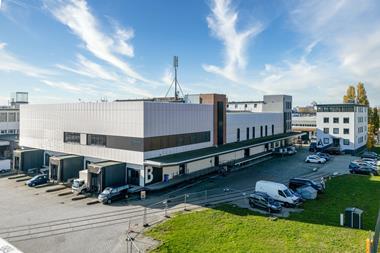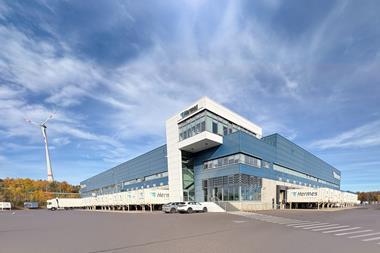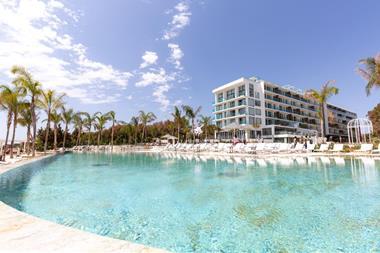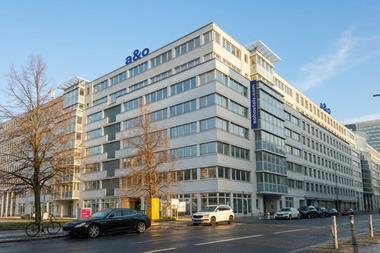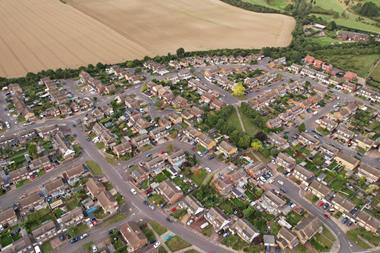With Germany scrapping its debt brake, an anticipated €900bn will be poured into defence and infrastructure over the next three years in a move set to have a major impact on the most used real estate for military purposes – light industrial.

Speaking to IPE Real Assets, Andrew Coombs, CEO of listed property company Sirius Real Estate, says the investment will boost demand and prices for such assets, which in Germany are currently valued well below replacement costs. “We expect that every €10 spent in defence will need to be supported by €1 investment in defence real estate,” says Coombs.
His comment follows Sirius’s recent hired retired major general Angus Fay as a strategic adviser – possibly the first defence-related appointment in the real estate industry.
“With an additional €400bn planned to be spent in defence alone, we expect something in the region of €40bn of additional funds to be invested in defence real estate and this will drive additional demand into German industrial assets,” Coombs says, adding that the amount compares to less than €1bn spent on defence related real estate last year.
Germany’s Chancellor Friedrich Merz in March lifted a longstanding debt brake allowing the debt-to-GDP ratio in the country to rise from 63% to 81%, as part of plans to finance a €400bn investment in security and a further €500bn in infrastructure and defence.
The UK also published its strategic defence review, envisaging a major increase in defence spending. “We are talking about an additional €16bn which will be spent only by the UK, partly to manage a potentially-increased presence of UK troops on German soil which will need supporting facilities of all kinds,” says Coombs.
Defence strategy, operations and logistics expert Fay was appointed by Sirius to counsel on national security and military logistics. He spent 37 years in the British Army, specialising in military logistics. Latterly, he was director general of global defence logistics operations in the UK Ministry of Defence, and also represented the UK on NATO’s Logistics Committee.
His appointment is part of Sirius’s strategy to create options within its portfolio to capitalise on increased demand from the defence industry in the UK and Germany, adds Coombs. “Increased security spending will lead to growing requirements among defence-related real estate occupiers. With Angus’s advice we can create optionality for these uses across our portfolio, while assisting governments with their defence goals,” he says.
Sirius, which owns 2.21m sqm of business and industrial parks in Germany and the UK, estimates that up to 20% of its portfolio is suitable for defence-related purposes, with much of its estate having been in military use in the past, whether as factories or transport hubs for military logistics. This includes Air War School Klotzsche, a former training school for the German air force in Dresden, a former aircraft factory in Munich, and a former Royal Air Force Reserve base in Southampton, UK.
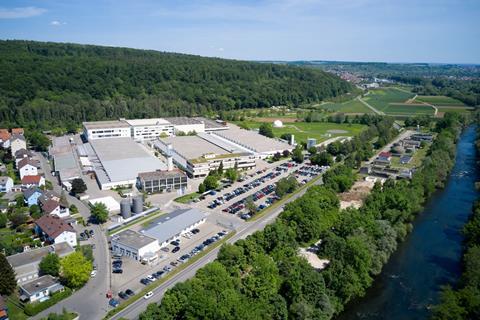
“The Dresden site for instance includes the former barracks to accommodate soldiers and an office which is standing vacant. Sites like this can be reconverted very quickly,” Coombs says.
Although it is too early to predict the impact on property values, Coombs expects that the price of light industrial assets will rise “quite substantially” in Germany and less so in the UK over the next three years.
“This asset class is currently valued half the replacement cost in Germany and we expect this gap will close in the future,” he explains. “In the UK, demand is still high but these assets typically trade for double-digit yields, which we expect will come down to single digits.”
Coombs says the new appointment will help the firm understand and navigate the changes with the new position acting as bridge between the military and the real estate world.
“We saw with the refugee crisis or with the COVID situation that industrial areas are key to processing large numbers of the population. We saw the way demand and prices went up. This is so much bigger than that – neither of those two things resulted in €400bn in spending,” he points out.
“This is something we cannot ignore – it is a potential transformation of the sector.”
To read the latest IPE Real Assets magazine click here.





